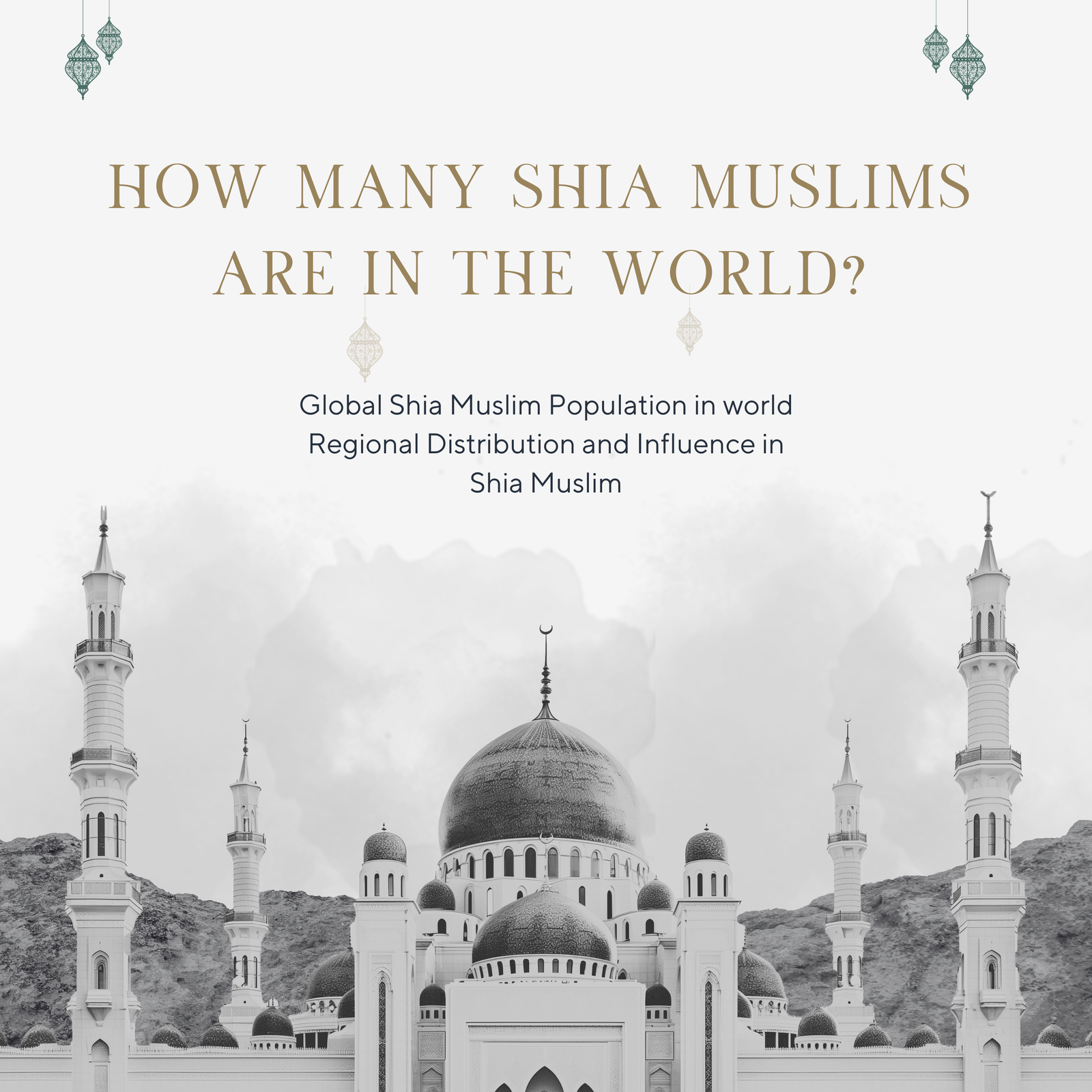Global Shia Muslim Population in world
The global Shia Muslim population is estimated to be between 200 and 300 million people, which constitutes approximately 10-15% of the entire Muslim population. Iran holds the largest Shia population, with around 95% of its people adhering to Shia Islam. In Iraq, Shia Muslims make up about 60-70% of the population, demonstrating a significant majority. Furthermore, Pakistan and India have substantial Shia communities, with around 20-30 million Shia Muslims are in the world. In Lebanon, Shia Muslims constitute about 27% of the population, primarily residing in the south and the Beqaa Valley. Azerbaijan, a predominantly Shia country, has about 85% of its population following Shia Islam.
Regional Distribution and Influence in Shia Muslim
Despite being a minority within the global Muslim community, Shia Muslims have notable populations in various countries. For example, in Saudi Arabia, Shia Muslims represent around 10-15% of the population, mainly in the Eastern Province. Afghanistan’s Shia community, primarily Hazaras, constitutes about 10-15% of the country’s population. In Yemen, the Shia population, mostly Zaydis, makes up about 35-40% of the people. These communities often face persecution and discrimination, particularly in Sunni-majority regions, leading to socio-political tensions. Shia Islam has several branches, the largest being Twelvers, with significant representation in Iran, Iraq, and Lebanon. Other branches include Ismailis and Zaydis, with distinct theological traditions.
Iraq also has a significant Shia majority, comprising about 60-70% of the population. Moreover, Pakistan and India, despite being predominantly Sunni, have substantial Shia communities. Pakistan is home to around 20-25 million Shia Muslims, representing 10-15% of its Muslim population, while India has approximately 20-30 million Shia Muslims, accounting for 10-15% of its Muslim demographic.
Lebanon’s Shia Muslims
Lebanon’s Shia Muslims
Mainly concentrated in the south and the Beqaa Valley, constitute about 27% of the country’s population. Azerbaijan is another predominantly Shia Muslim country, with about 85% of its population adhering to Shia Islam. Saudi Arabia, though predominantly Sunni, has a significant Shia minority, particularly in the Eastern Province, where they constitute around 10-15% of the population.
In addition to these countries, Shia Muslims can be found in smaller numbers across various regions, including Afghanistan, Yemen, Turkey, Syria, and the Gulf states. Afghanistan’s Shia population, mainly Hazaras, constitutes about 10-15% of the country’s population. In Yemen, the Shia community, primarily Zaydis, makes up around 35-40% of the population.
leadership structures
Shia Muslims follow a branch of Islam distinct from the Sunni majority, with different religious practices, beliefs, and leadership structures. The divide between Shia and Sunni Muslims dates back to the early days of Islam, primarily over the rightful successor to Prophet Muhammad. Shia Muslims believe that Ali, the Prophet’s cousin and son-in-law, and his descendants are the legitimate leaders of the Muslim community, known as Imams.
Shia Islam itself is divided into several branches, the largest being Twelvers, who believe in a lineage of twelve Imams. Other branches include Ismailis and Zaydis, each with distinct theological and jurisprudential traditions. Twelver Shia Islam is predominant in Iran, Iraq, and Lebanon, while Ismailis have significant communities in India, Pakistan, and East Africa. Zaydis are primarily found in Yemen.
Despite being a minority within the global Muslim community, Shia Muslims have played a significant role in the religious, political, and cultural history of the Muslim world. They have established influential states and dynasties, contributed to Islamic scholarship, and continue to shape contemporary Muslim societies.
However, Shia Muslims often face persecution and discrimination, particularly in countries where they are a minority. Sectarian tensions and conflicts have exacerbated their marginalization, leading to violence and socio-political instability in regions like Iraq, Pakistan, and Bahrain. In recent years, geopolitical dynamics in the Middle East, especially the rivalry between Iran and Saudi Arabia, have further intensified Sunni-Shia divides, impacting the lives of millions of Shia Muslims worldwide. For Further information, you can visit Shia pray salat.

